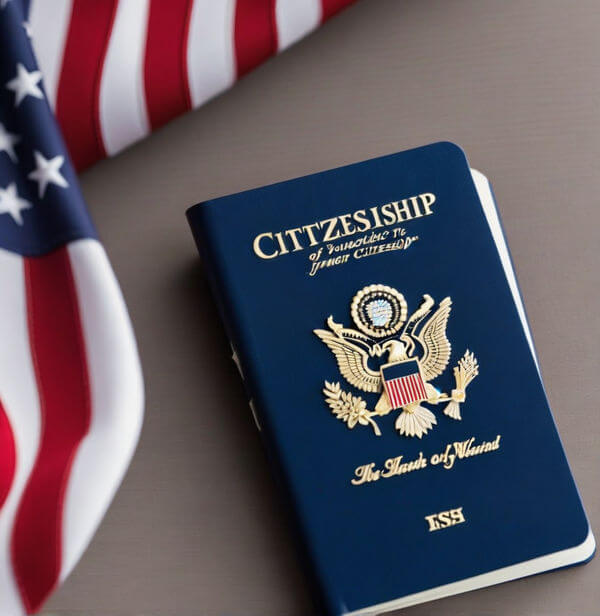
What Does It Mean to Have Dual Citizenship?
Dual citizenship, also known as dual nationality, occurs when an individual is concurrently recognized as a citizen of two distinct countries. This implies that in the U.S. context, one can hold citizenship in both the United States and another nation. However, it's important to note that not all countries permit their citizens to maintain dual citizenship, with policies differing widely from one nation to another. Additionally, acquiring dual citizenship can involve a range of legal processes, depending on the countries involved, and might require navigating both nations' laws and requirements. Understanding these regulations is crucial for anyone considering pursuing dual citizenship.
Is Dual Citizenship Recognized by the United States?
The United States indeed recognizes dual citizenship, not mandating naturalized citizens to relinquish their original nationality. While the U.S. Oath of Allegiance mentions renouncing loyalty to other countries, American immigration legislation does not specifically address dual citizenship. The stance of the U.S. on this matter is best captured by a Supreme Court ruling, stating that an individual can hold and exercise the rights of nationality in more than one country, bearing the responsibilities that come with each. The U.S. Department of State offers further insights into the complexities of dual citizenship. However, acceptance of dual citizenship by the U.S. does not guarantee the same from your country of birth. Countries like China and India do not acknowledge dual nationality, particularly affecting those who become naturalized U.S. citizens, potentially leading to the automatic forfeiture of their original citizenship. Prior to seeking U.S. citizenship, it's crucial to fully understand how your home country views dual nationality.
What are the advantages of having dual nationality?
Holding dual citizenship with the United States and another nation offers a plethora of benefits, potentially aligning with personal, professional, or educational aspirations. It's crucial, though, to recognize the responsibilities that accompany becoming a naturalized American, in addition to the privileges. Our in-depth guide on the rights and obligations of US citizens is available for further reading if you want a more complete grasp of what it means to be a US citizen—including those who do not seek dual nationality. Navigating these dual commitments requires careful consideration and planning to ensure compliance with the laws and expectations of both.
Privileges and Limitations for Dual Citizens in the U.S.
As a dual citizen, you enjoy the freedom to seek employment across the United States without needing a work permit. However, dual allegiance might limit your eligibility for certain federal positions that demand a high level of security clearance and confidentiality, especially if your other country of citizenship has interests conflicting with those of the U.S. Travel freedom is another perk; you can stay overseas indefinitely without jeopardizing your U.S. citizenship status, bypassing the need for a re-entry permit required for permanent residents after a year abroad. Additionally, you have the advantage of sponsoring immediate family members for green cards. The right to vote in U.S. elections is a significant benefit of U.S. citizenship, including dual nationals, as voting in federal elections is reserved exclusively for citizens. Dual citizenship also simplifies access to education, allowing you to attend U.S. institutions without a student visa and avoid international tuition fees. Furthermore, eligibility for public benefits, such as tuition aid, is extended to dual citizens who meet specific criteria. This blend of benefits underscores the unique position of dual citizens, balancing extensive opportunities with certain specific constraints.
Responsibilities for Dual Citizens in the U.S.
As a dual citizen of the United States, there are several key responsibilities:
- Lifetime U.S. Tax Obligations: U.S. citizens, including dual citizens, are required to file U.S. taxes on worldwide income for their entire lives. This could lead to taxation on the same income in both the U.S. and your other country of citizenship, unless a tax treaty exists to prevent double taxation.
- Law Enforcement Disclosure: When applying for naturalization, USCIS officers will thoroughly examine your criminal record. Offenses such as immigration fraud, substance abuse, or domestic violence can jeopardize your citizenship status and may lead to deportation. It's advisable to consult with a legal expert if you have any concerns regarding past legal issues.
- Military Service Compliance: Male U.S. citizens who have lived in the U.S. or have been green card holders between the ages of 18 and 26 are obliged to register with the Selective Service System. In times of war, dual citizens are expected to fulfill any military service required by U.S. law.
- Jury Duty Participation: Serving on a jury is a duty of all U.S. citizens. While being summoned doesn't guarantee selection as a juror, the selection for panelists occurs after the summons for court. Being a dual citizen does not exempt you from this civic responsibility.
In addition to these obligations, dual citizens should ensure their activities abroad do not conflict with U.S. laws, maintaining the integrity and responsibilities of U.S. citizenship even when outside the country's borders.
Getting Dual Citizenship in the United States
In the United States, how does dual citizenship work?
The United States doesn't have a specific procedure or application designated for obtaining "dual citizenship." The process involves acquiring a second nationality, in this case, U.S. citizenship, alongside your original one. The first step is to verify with your home country's embassy or consulate if dual citizenship is permitted. Failure to do so might result in the unintentional loss of your original nationality. Once it's confirmed that your home country acknowledges dual citizenship, including holding U.S. citizenship, the next step involves ensuring you meet all the prerequisites for U.S. naturalization, unless citizenship by descent is applicable to you. Following this, you're set to initiate the U.S. citizenship journey by filing Form N-400, known as the “Application for Naturalization,” with USCIS.
Securing Dual Citizenship: When Is the Right Time?
The ideal time to pursue dual citizenship is once you fulfill the prerequisites for naturalization, typically 3 to 5 years following the acquisition of your green card. This period allows you to thoroughly understand your rights and responsibilities in both countries and ensure you're making an informed decision. Additionally, it provides ample time to consult with legal experts or the embassies of both nations to navigate any complexities involved in holding dual citizenship.
What Is the Duration of the Naturalization Process?
Initiating your citizenship journey by submitting an application to USCIS marks merely the beginning. The entire pathway to naturalization may extend up to 1.6 years, influenced by the specific USCIS field office handling your case and the timeliness of your application submission. For a more comprehensive understanding, refer to our in-depth exploration of the naturalization timeline.
Global Perspectives on Dual Citizenship
As of 2020, over three-quarters of countries worldwide permit their citizens to hold dual citizenship, though regulations vary widely. The list below highlights the stance on dual citizenship of the 10 countries with the largest populations eligible for U.S. naturalization, providing insight into the complexities of holding dual nationalities:
- Mexico: Upon U.S. naturalization, Mexicans can retain their nationality but lose voting rights and eligibility for public office, except those naturalized before 1998, who initially lost Mexican nationality but could reclaim it within five years.
- China: Chinese nationals lose their citizenship upon naturalizing in the U.S.
- Philippines: Filipinos forfeit their citizenship when they become U.S. citizens, but natural-born Filipinos have the option to reacquire it.
- Cuba: The automatic loss of Cuban citizenship for naturalized U.S. citizens is not explicitly clear. The Cuban government considers U.S. citizens born in Cuba as Cuban nationals.
- Dominican Republic: Naturalized U.S. citizens from the Dominican Republic can retain their original citizenship, though they cannot run for presidential or vice-presidential roles and are not recognized as Dominican diplomats or consuls by the U.S.
- India: Indian nationals lose their citizenship upon naturalization in the U.S. but can become an "Overseas Citizen of India," granting them several rights except political ones.
- Canada: Canadian nationals may maintain their citizenship after becoming U.S. citizens.
- Vietnam: Vietnamese citizens lose their nationality upon U.S. naturalization but have the option to reacquire it.
- United Kingdom: British citizens can retain their nationality when they become naturalized U.S. citizens.
- El Salvador: Salvadorans naturalizing in the U.S. can retain their citizenship if they were born in El Salvador.
Navigating dual citizenship involves understanding both the opportunities and restrictions set forth by an individual's countries of citizenship. Wishing you the best of luck on your journey to becoming a dual citizen!

